Urothelial Carcinoma
TAR-200 alone was compared with TAR-200 in combination with a PD-1 inhibitor to determine the efficacy of the treatment.
Dr. Gopa Iyer discusses his investigation of the relationship between DDR, mUC molecular subtypes and survival outcomes.
Researchers identify a key prognostic biomarker in MIBC that may predict disease outcomes, treatment efficacy in patients.
The outcomes of laUTUC for those with cT3-4 cM0 or cN1-2 cM0 disease are similar for both open and minimally invasive RNU.
At the Oncology Forum, Dr. Sanjay Juneja led a dynamic discussion covering pivotal developments across genitourinary cancers.
A deep learning model can be used to efficiently compare the outcomes of patients with NMIBC undergoing various treatments.
Drs. Ahdoot, Yerram discusses trial data, early adoption, and why en bloc TURBT is a safe option worth trying in practice.
Drs. Ahdoot, Yerram review trial data and share practical tips for adopting en bloc TURBT across real-world settings.
Researchers evaluated the link between DDR alterations, molecular subtypes and survival benefits in mUC using Phase 3 data.
Drs. Ahdoot and Yerram weigh how to approach tumors located in challenging areas, and the role of detrusor muscle sampling.
Drs. Ahdoot and Yerram discuss the fundamental reasons for adopting en bloc resection in bladder cancer surgery.
Researchers find promise in Gem/Doce as an alternative therapy for patients with NMIBC recurrence after BCG induction.
Drs. Packiam and Yerram conclude with an AI-powered pathology tool designed to predict response to BCG in NMIBC.
Drs. Packiam and Yerram shift focus to SunRISe-1 Cohort 4, which examined BCG-unresponsive papillary disease.
Drs. Packiam and Yerram contextualize recent data from the CREST trial, which evaluated sasanlimab with BCG for HR NMIBC.
Drs. Packiam and Yerram focus on how agents like gem/doce, pembro, nadofaragene, cretostimogene, and TAR-200 are used.
Drs. Packiam and Yerram discuss TAR-200 and the ongoing SunRISe-3 trial exploring its effectiveness amid BCG shortages.
Drs. Packiam and Yerram discuss the emergence of gem/doce as a promising alternative to BCG.
The panel concludes with a candid discussion about the most urgent changes that could improve cancer care today.
The panel explores the importance of introducing palliative care discussions earlier in the treatment journey.

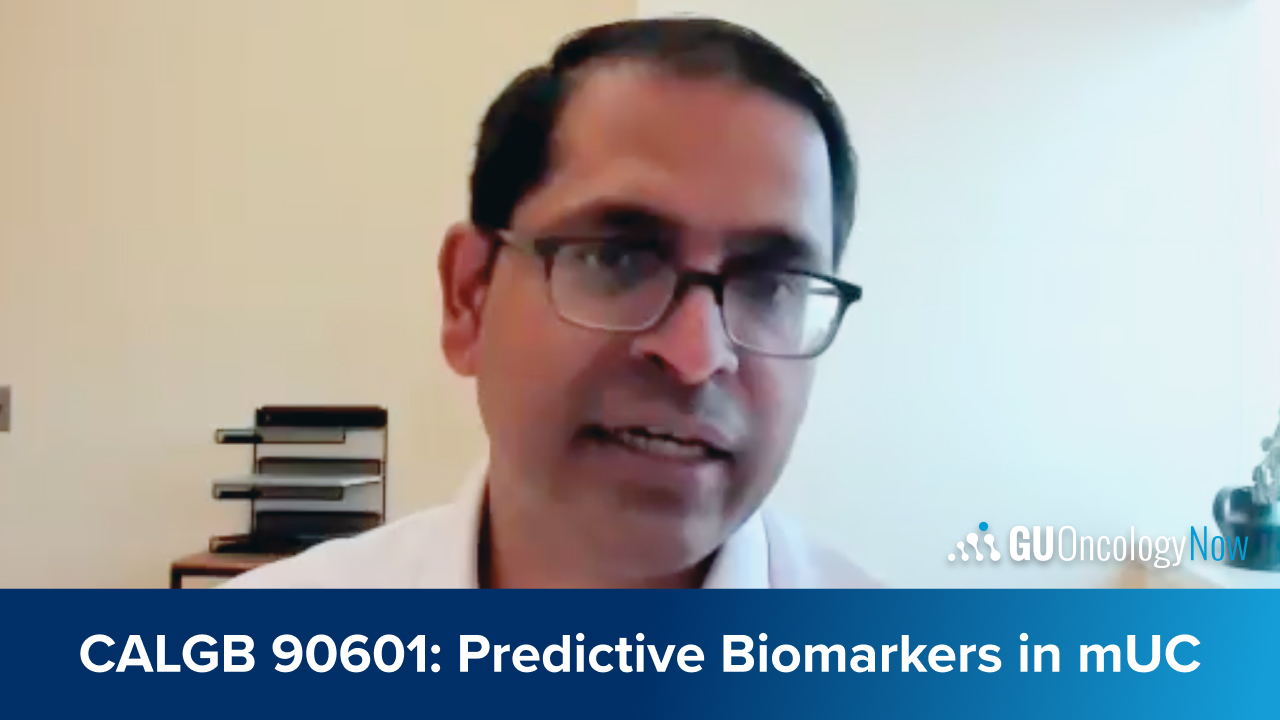
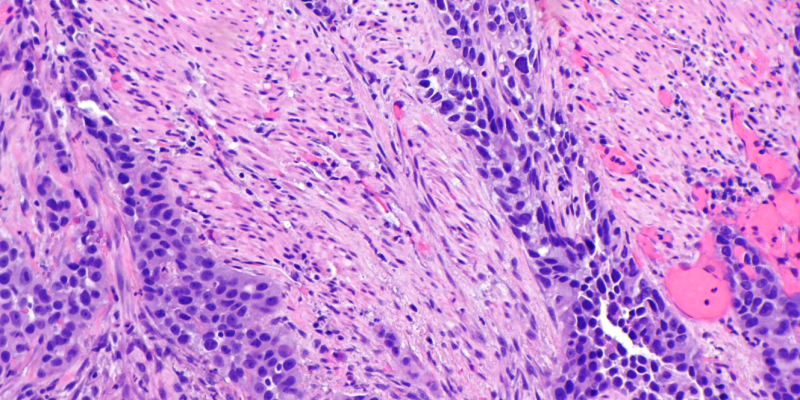

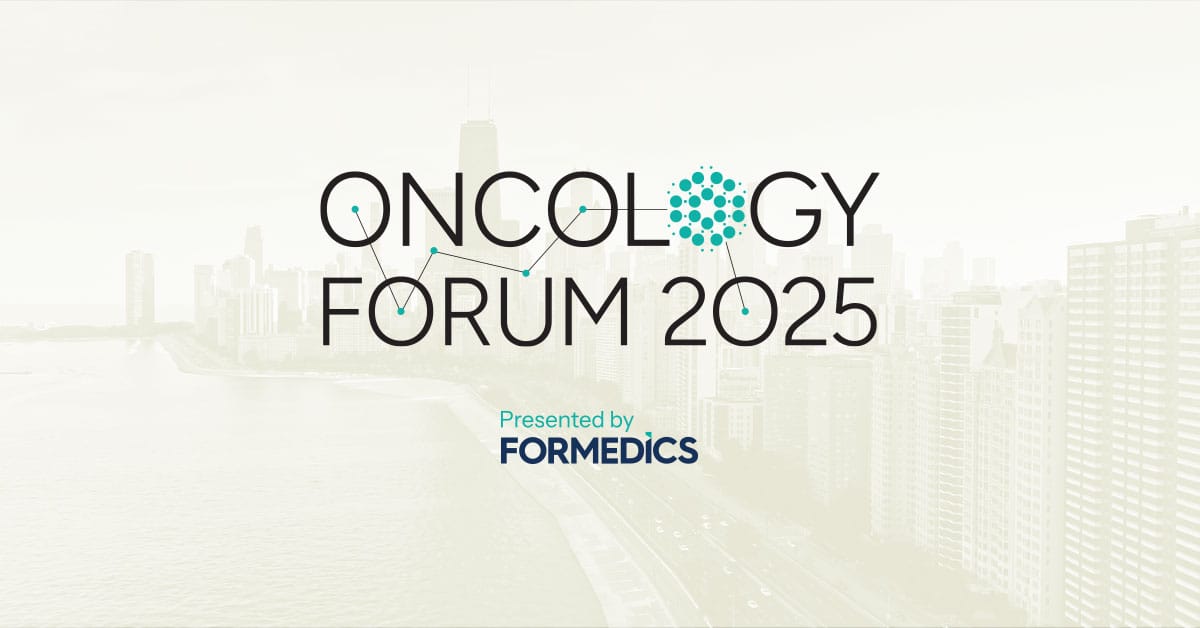

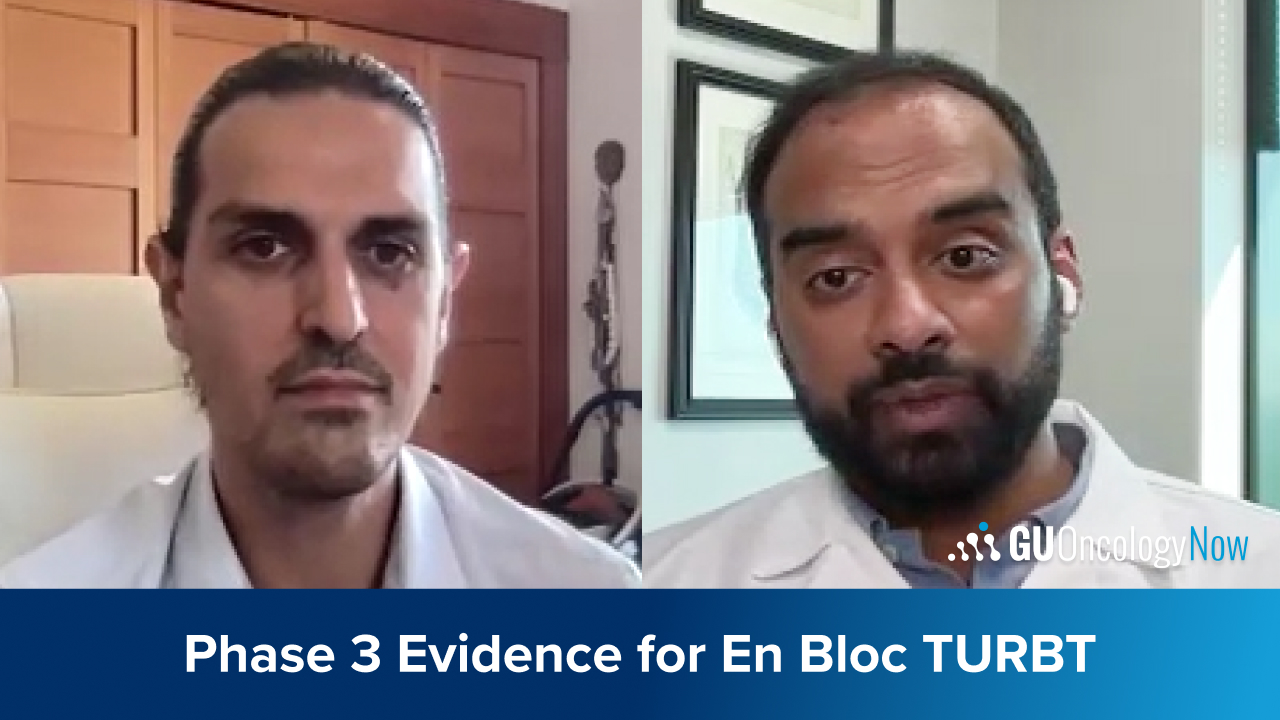
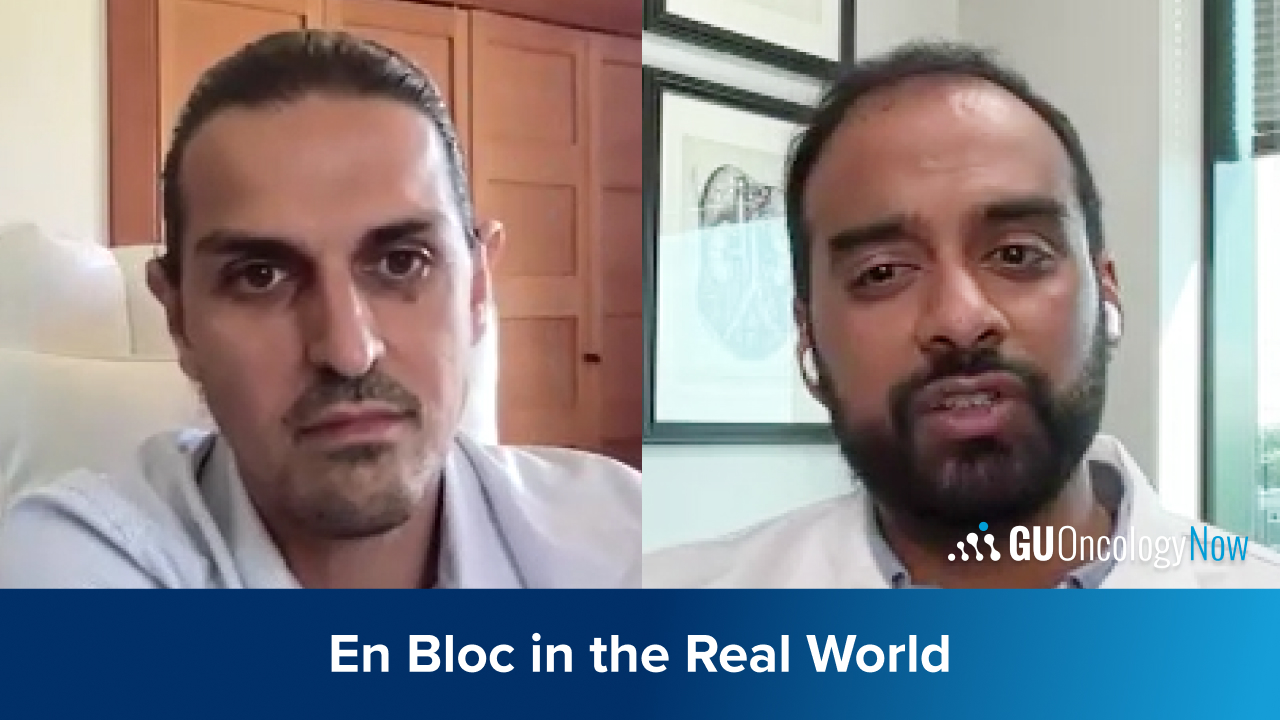
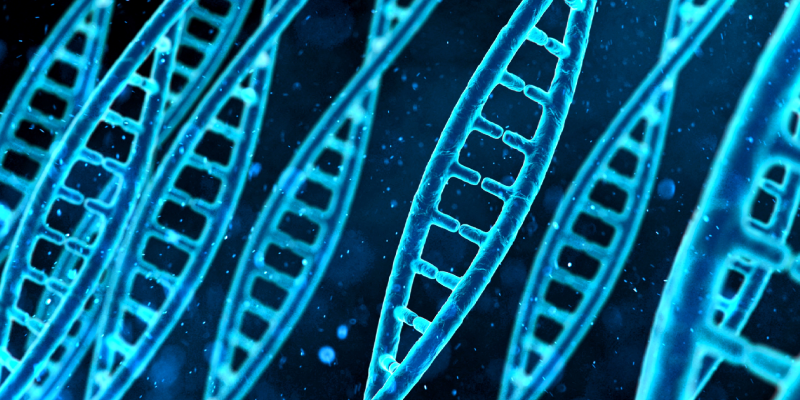
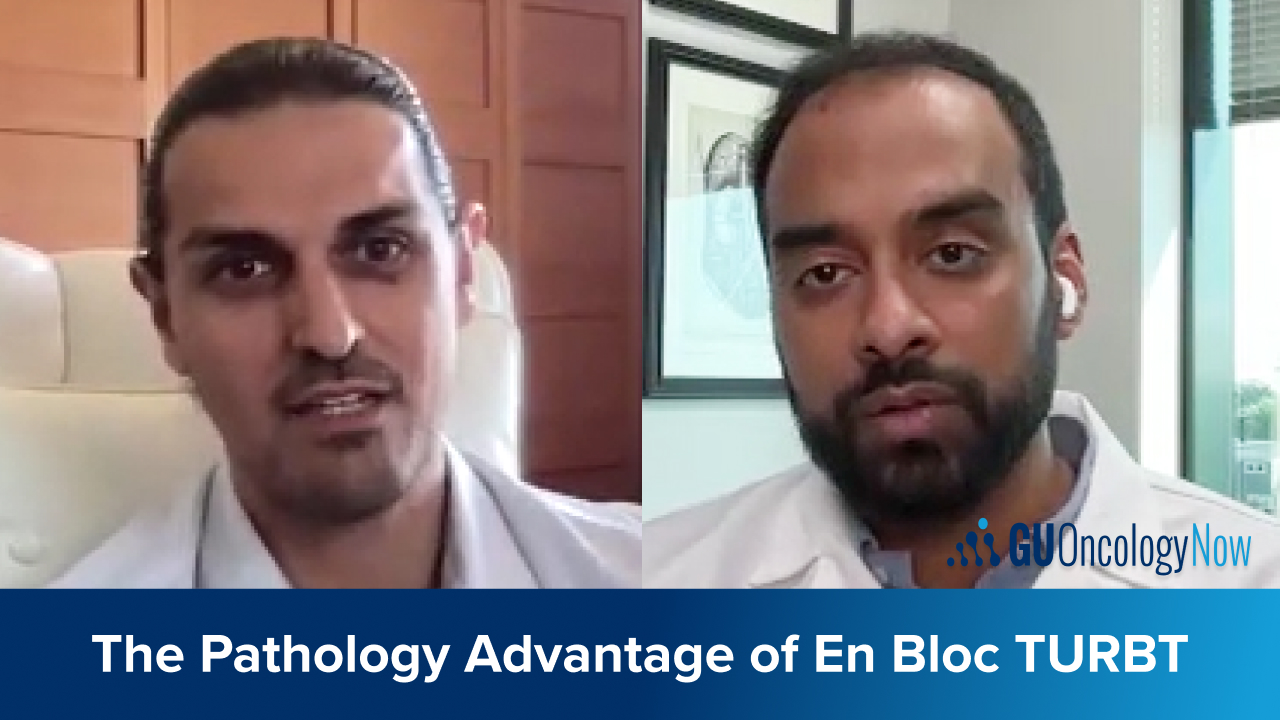
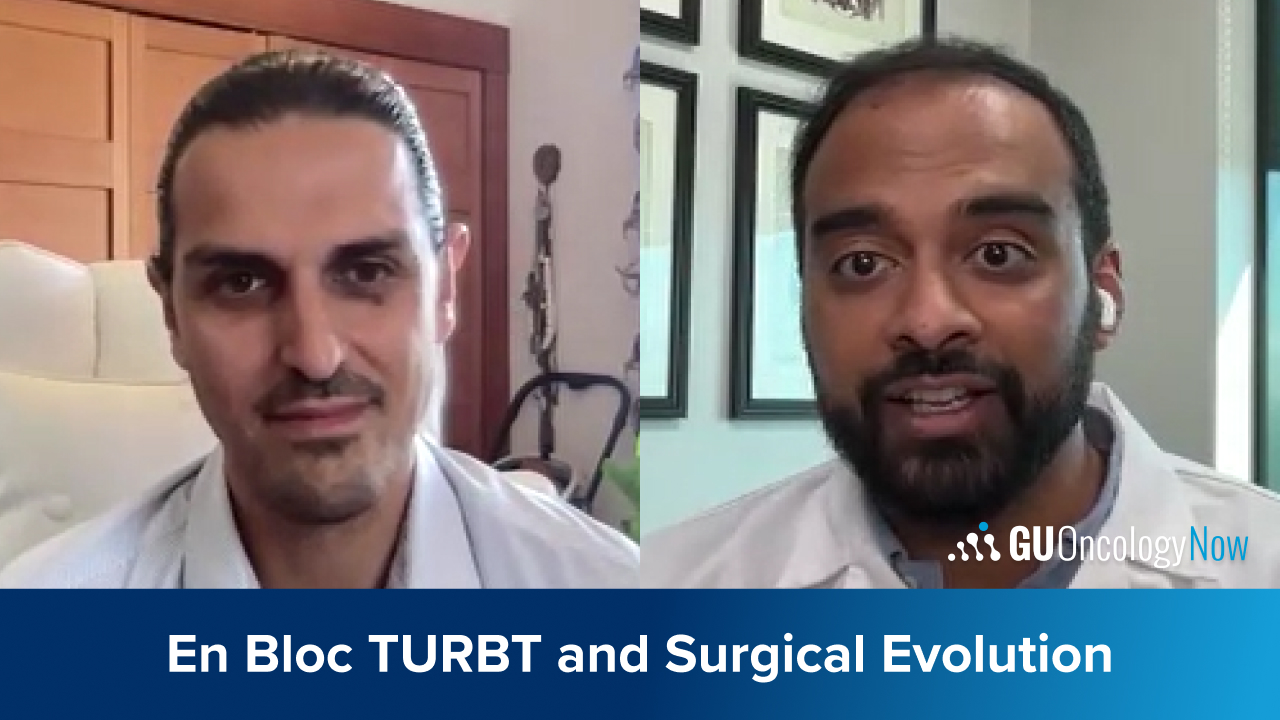
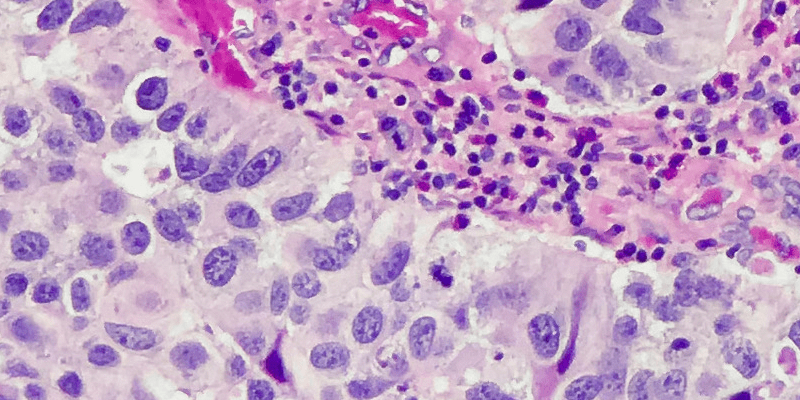
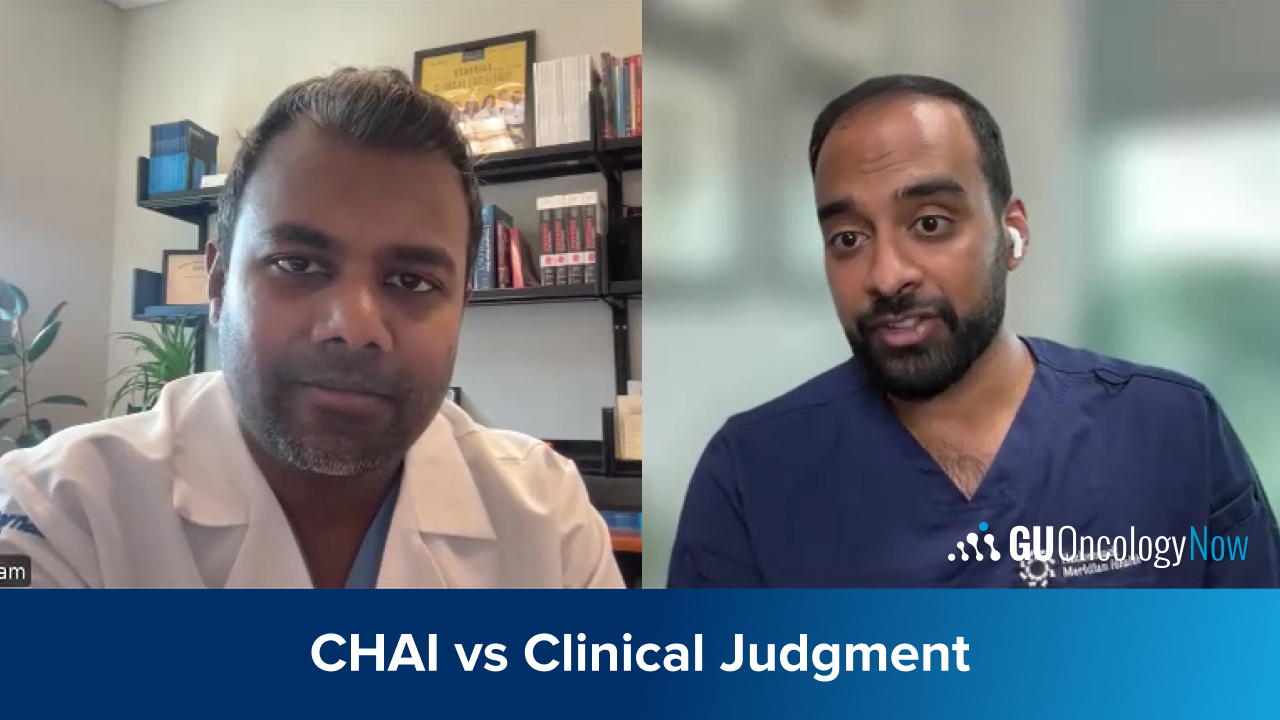
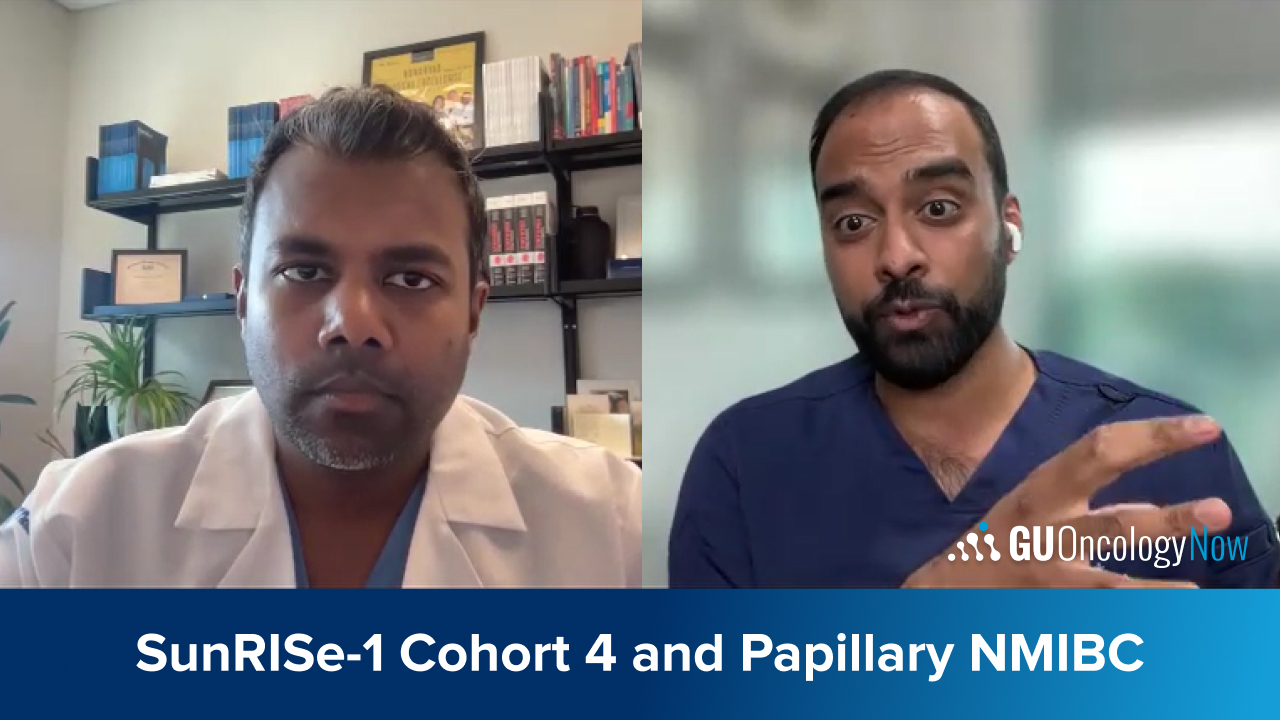
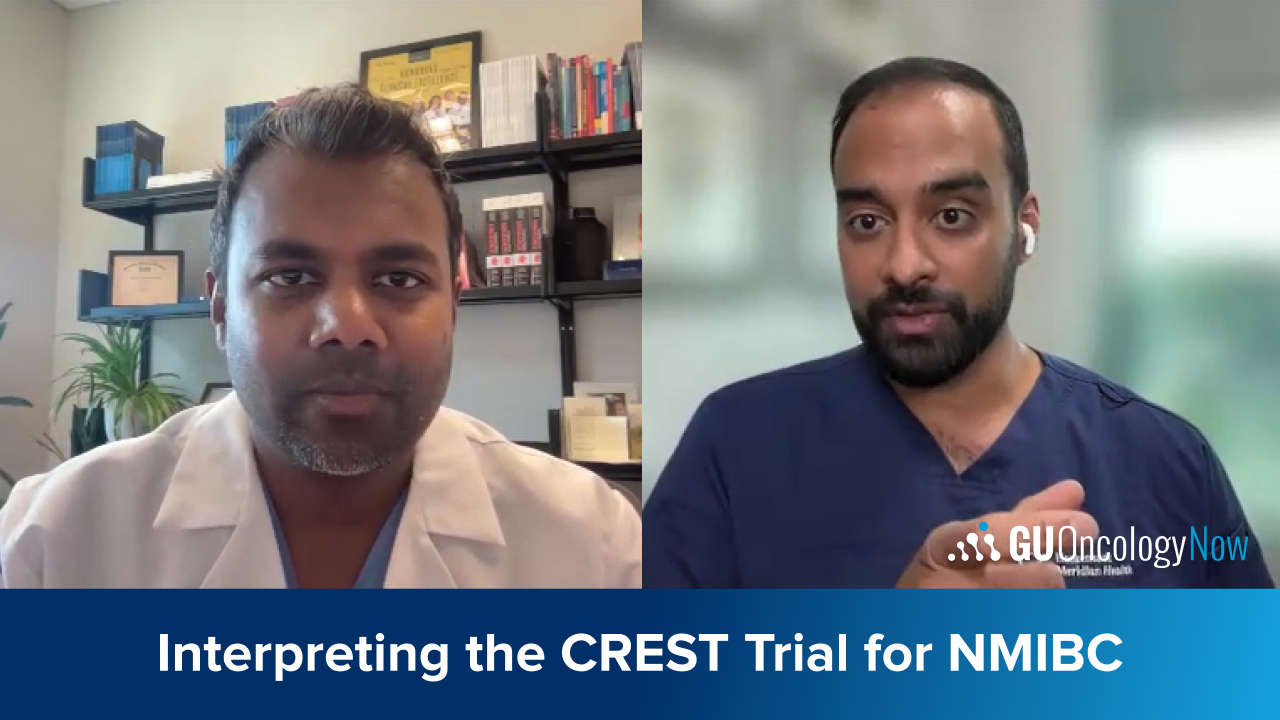
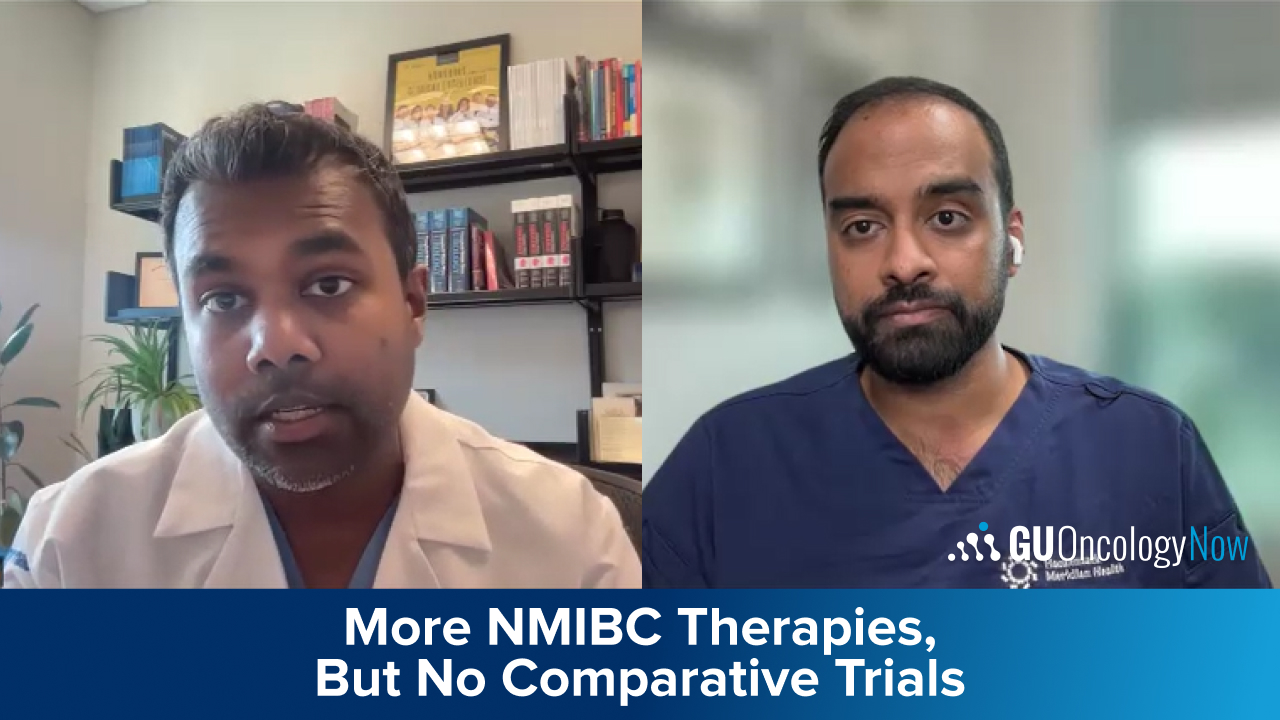
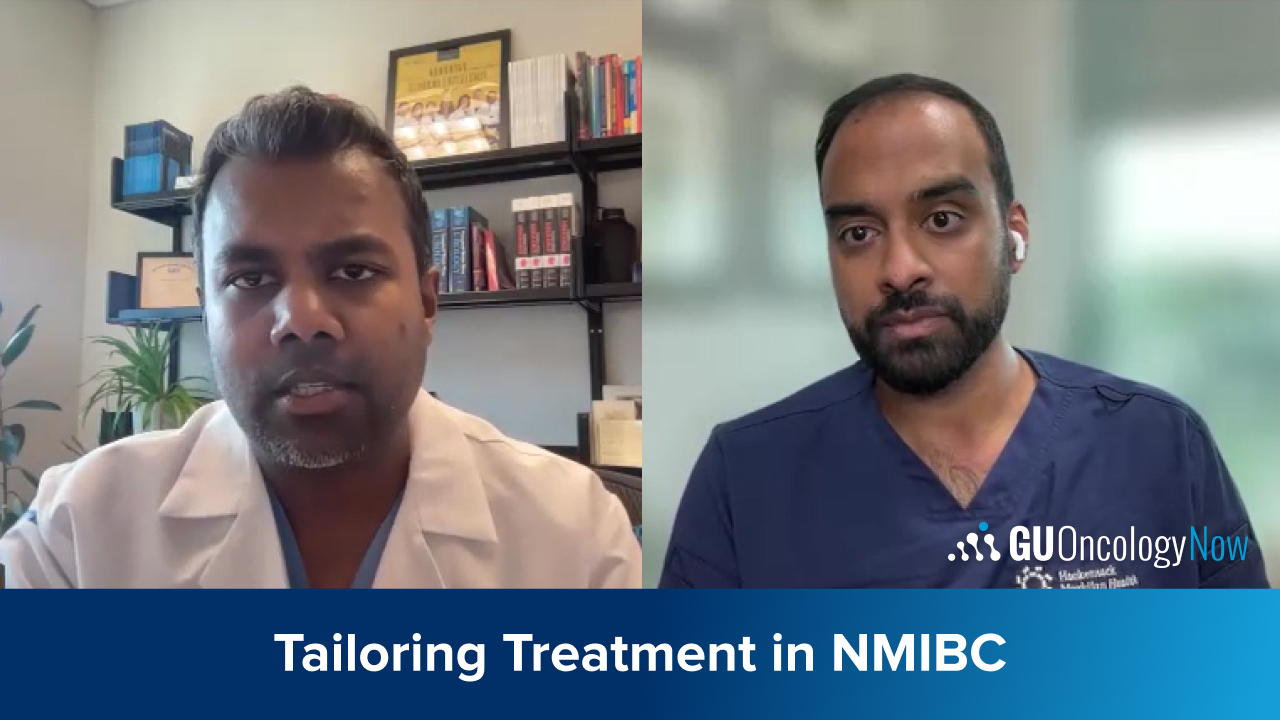

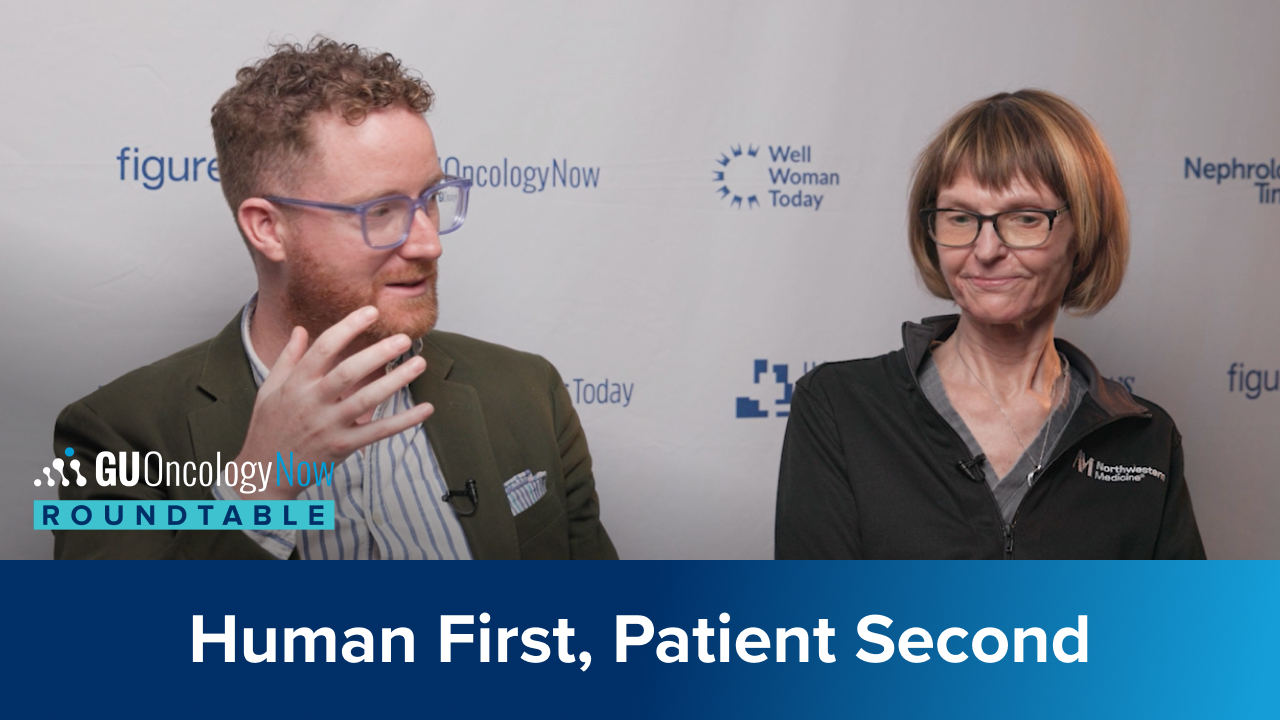
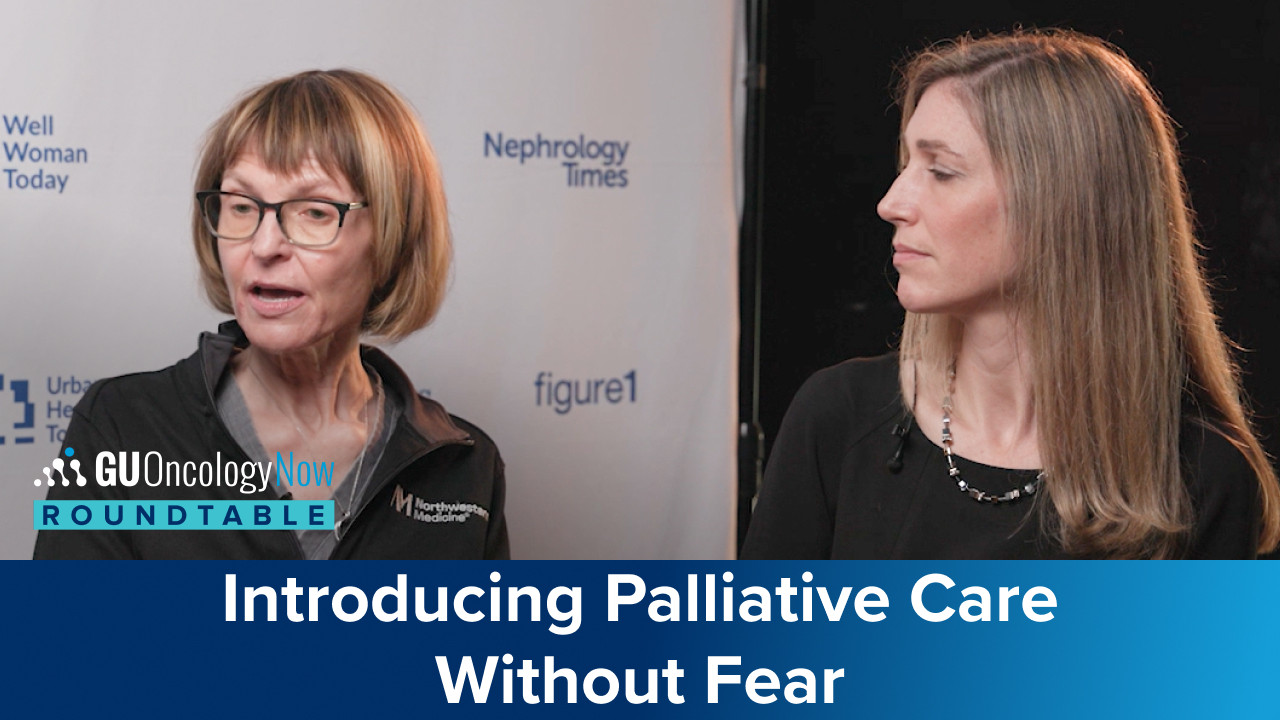

 © 2025 Mashup Media, LLC, a Formedics Property. All Rights Reserved.
© 2025 Mashup Media, LLC, a Formedics Property. All Rights Reserved.